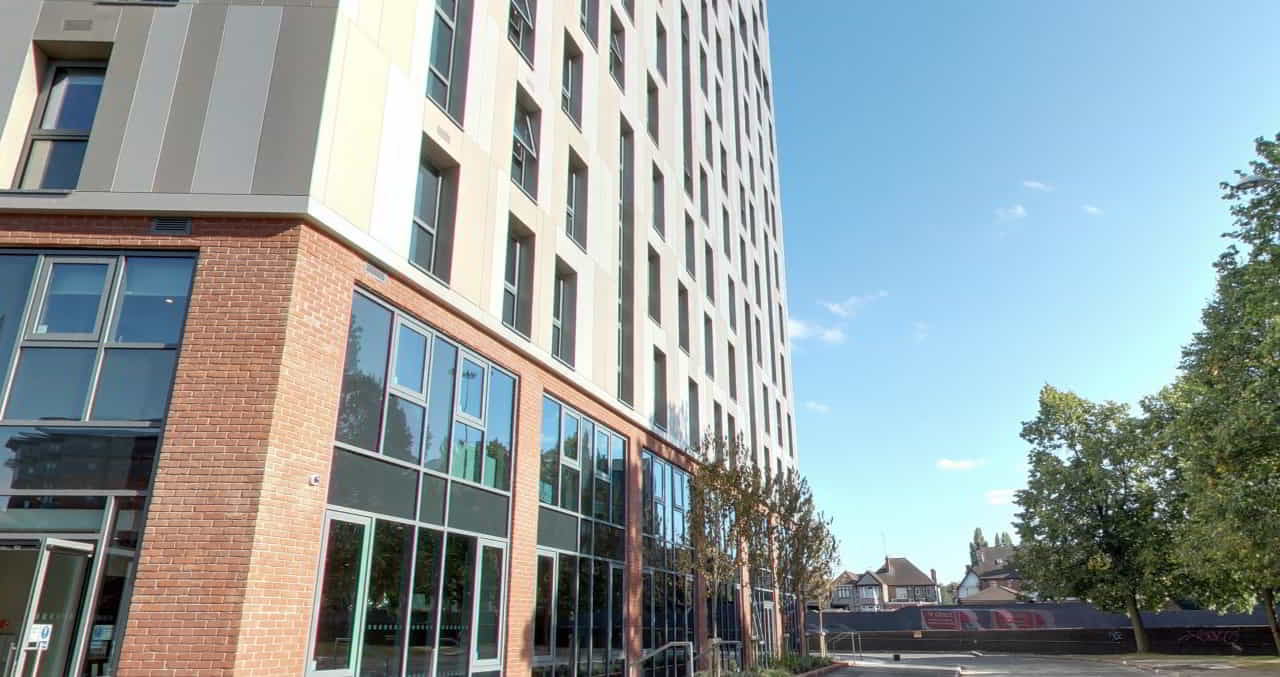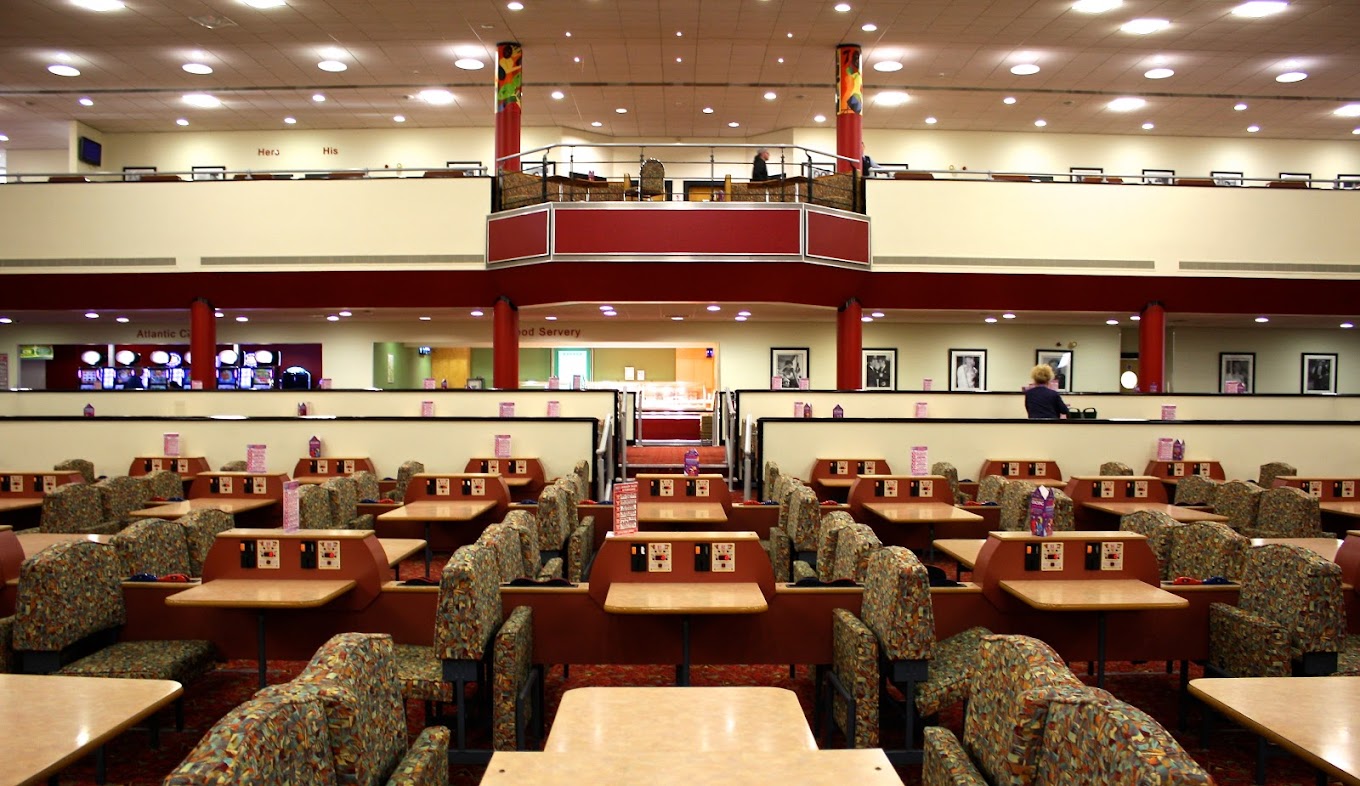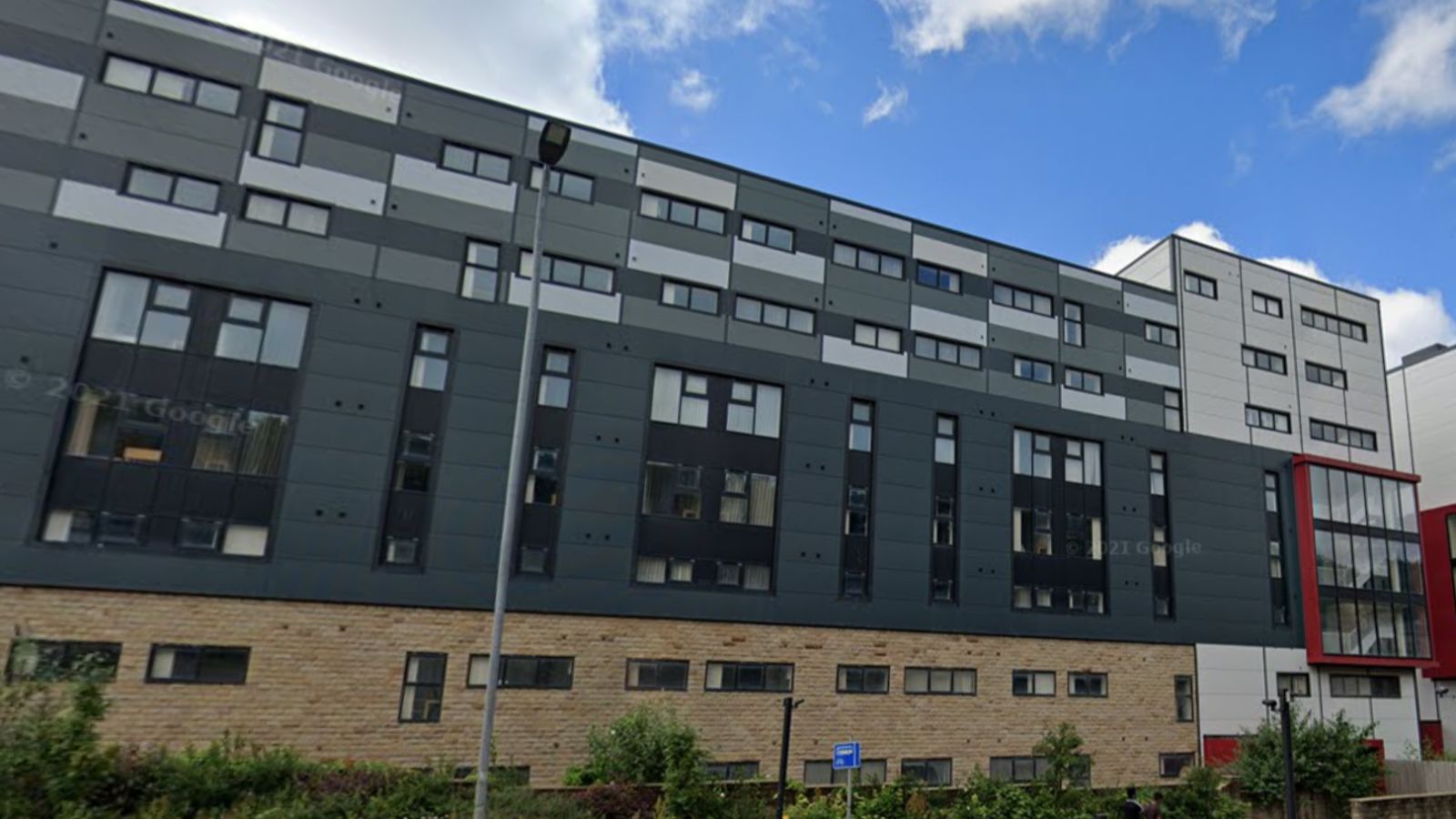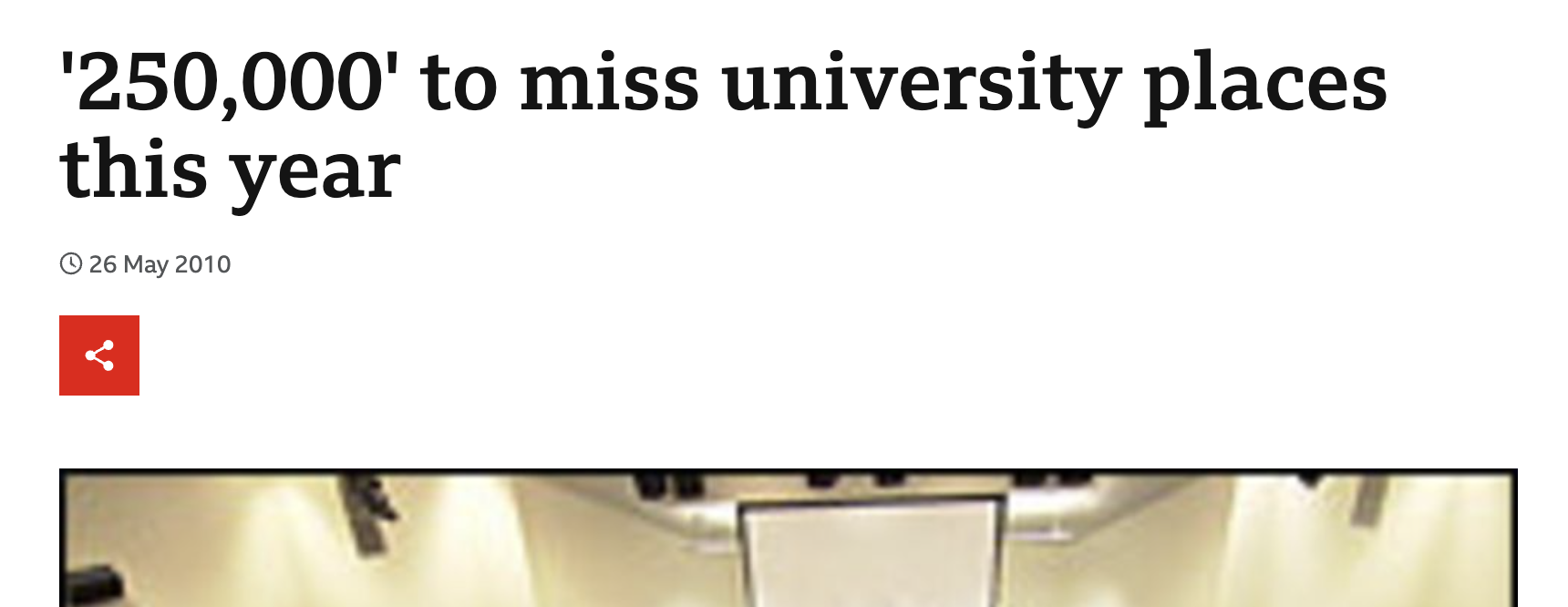When, in 2022-23, the higher education sector recruited vastly more international students than it had done the year before, a number of cities ended up with a bedspace problem.
That was bad enough for single, independent students. But those arriving with families, often in the middle of the night on a vague promise of housing support from their agent, found themselves sat in security and/or SU offices as kind colleagues sourced soft toys and squash before jumping onto Airbnb to find something – anything – that might work.
It turns out that adding – once you add in the dependants – about 130k bed spaces to the demand pool in a single year across our university towns and cities needs a plan – one nobody in charge seemed to want to take responsibility for.
And even if there was a plan, it takes time to build that volume – time that was not available.
When I arrived in the country, my friend didn’t answer her phone. She said she would send me the address, but I’ve not heard from her…. I was originally in a Travelodge, but that ran out on Friday (October 7) after five days… Since then I’ve been sleeping on an inflatable lilo on Ken’s living room floor. If I don’t find somewhere soon, I’m going to have to fly back to Nigeria and I will have wasted my money.

I’ve talked before here about the idea that all students ought to be able to expect that when they are recruited to study away from home – especially if that home is in another country – that that recruiting provider figures the likelihood that they’ll be able to live somewhere reasonably priced, reasonably close to campus, of a minimum safety level and reasonably suitable for their needs is high.
If a provider doesn’t know if that likelihood is high, I’d argue that’s negligent. If a provider does know that the likelihood is low, I’d argue that’s profoundly immoral.
Of course since then two things have happened. The sharper end of the crisis melted away somewhat when the dependant ban was introduced – notwithstanding problems with accommodation suitability and pregnancy. And numbers overall have fallen sharply – plunging universities into belt tightening and redundancy programmes and away from the less ribbon-cutty end of civic duties.

But if towns and cities aren’t especially able to expand their bedspaces with the rapidity that the recruitment office makes offers, then it also should surely mean that rapid contraction has its problems too.
And we’re now starting to see several coalmine canaries that should cause some to stop and think – a typical example of which can be found in the West Midlands.
What a lovely view
Coventry has long been at the forefront of approving Purpose-Built Student Accommodation (PBSA) build – anyone visiting the city will know that many of the gleaming towers that dominate the skyline these days are housing students.
Trinity View is one of those developments. At the junction of Friars’ Road and St Patrick’s Road, it’s less than ten minutes’ walk from the main campus of Coventry University and less than five minutes’ walk to the city’s mainline train station – which offers regular bus services for students attending Warwick University.
 As well as 614 bedrooms in various configurations, it boasts a private landscaped courtyard “for a great place to socialise and work”, a 10th-floor roof terrace, a gym, a cinema room, a “Games Zone”, study zones, and “the attentive service of the on-site dedicated management team”. Safety is “paramount” with an out-of-hours security team, free contents insurance up to £10,000 with Endsleigh, and 24/7 CCTV secured by a key fob entry system.
As well as 614 bedrooms in various configurations, it boasts a private landscaped courtyard “for a great place to socialise and work”, a 10th-floor roof terrace, a gym, a cinema room, a “Games Zone”, study zones, and “the attentive service of the on-site dedicated management team”. Safety is “paramount” with an out-of-hours security team, free contents insurance up to £10,000 with Endsleigh, and 24/7 CCTV secured by a key fob entry system.
It’s like a hotel. And as ever with these builds, approving it will have made sense to the council – because these blocks of this ilk take pressure off the wider off-street housing market.
It’s operated by Prime Student Living – but like many of these blocks, isn’t actually owned by that firm. Prime is a student accommodation management company that operates the assets on behalf of others – for a cut of the rent, it markets the property, puts on the pizza parties and so on.

Underneath that the block is a financial asset – acquired by City Developments Ltd in 2022 – right in the middle of the international PGT boom.
Boom boom boom boom, I want you in my room
At the time, its chief executive Sherman Kwek was excited by the financial prospects:
The UK student accommodation sector continues to demonstrate strong resilience as students return to campus post-Covid. Our newly acquired assets are strategically located in cities where there is high demand but traditionally underserved by a lack of supply, providing further rental growth potential in the longer term.
With universities in the UK enhancing their global positioning, it presents an exciting opportunity for us to amplify our presence in this sector and strengthen our recurring income.
Those were the days. In July it applied to Coventry City Council to change its use to permit some non-student stays – albeit in a limited way – and the covering letter lays out the wider problem now facing the city.
Since completion, student demand has been volatile due to a number of factors. The impact of Brexit and the COVID-19 pandemic meant the number of international students attending UK universities significantly reduced, particularly in the first years of operation.
OK. But there’s been a boom since, surely?
There is also an oversupply of purpose built student accommodation (PBSA) in Coventry. This has had a knock-on impact on residential occupancy and the length of tenancies at Trinity View against what was anticipated in the financial model for the accommodation.
The thing about any oversupply of general off-street housing in most university towns and cities is that landlords of HMOs tend to be able to switch them to rental housing for families, social housing, AirBNBs, general population HMOs or even just sell up to someone who wants to buy the place.
But PBSA isn’t so simple. By definition they’re supposed to be huge, hermetically sealed blocks of students – where planning law allows the rooms to be significantly smaller than would otherwise be allowed for humans. So what do you do when demand falls?
In 2022 the firm applied applied for change of use from Sui Generis (Student Accommodation) to mixed Sui Generis (Student Accommodation) and Use Class C1 (Serviced Accommodation) for a temporary period of five years in the hope the student market would recover in this time.
The application was granted – and a condition was placed on the planning permission restricting the change of use to only apply “for the months in the summer outside of the academic term times.” The planning permission allowed the empty rooms to be made available to non-students on short term lets.
Over the summer, not only was it like a hotel, it became a hotel.
But it wasn’t enough. The “rate of recovery” in student demand in Coventry has been “much slower” than anticipated – and in fact there has been “further decline”:
High levels of vacancy at Trinity View are no longer only apparent in summer outside of term time. Vacancy levels have been high throughout the year and the building is operating well below capacity.
For the 2022-23 academic year, average occupancy during term time was just 74 per cent. For 2023-24, average occupancy across term time increased to 85 per cent – but that was only achieved by supplementing with short term lets to students (primarily in “semester one” – although notably Coventry University operates several entry points in a year).
Average occupancy based on typical 44-week or 51-week tenancy agreements was down to just 71 per cent – compared to 92 per cent for the 2021-22 academic year. Suddenly, the numbers don’t stack up.
Economics 101
When times are good, PBSA looks like a smart bet. When a developer applies to build student housing there is no requirement to contribute towards affordable housing – automatically triggered in residential developments. And – unlike hotels – owners of student flats do not pay business rates.
Yet one of the stranger phenomenona in the PBSA market that will baffle if you think back to your Economics GCSE is that lower demand plus oversupply instinctively ought to mean that prices fall. But when both Cardiff and Plymouth experienced similar oversupply issues a few years back, it didn’t seem to happen.
There were inducements galore – vouchers here, free laundry there, even bus trips to Buck Palace – but the rent kept climbing.
To be fair, sometimes the picture is more complex. Back at Trinity View, this year, a “Deluxe Studio” (a “spacious” 25m2 with “amazing” views of the city) was on at £243 a week – this year that’s £265, a nine per cent increase. There’s even a waiting list. But a “classic” room on the first floor – 13m2 – last year was being advertised for £169 a week. That’s now £112.
The point is that the various room types at various price points are designed in these huge blocks with a spread of tenants in mind – tenants whose volume has proved hard to predict, let alone price sensitivity within that demand pool as the countries the sector recruits from changes and currencies fluctuate.
Overall, the owners, operators and investors need an amount of money to roll in to make the model stack up – fixed operational costs means that providers rely on consistent rental income targets to meet financial obligations and maintain facilities. Just like universities.
So when the money stops rolling in – partly because not only is there an oversupply, but the supply you have is the wrong supply – you can only drop your prices so far. Beyond that, you can change the use, or sell up. And neither are anything like as easy as when you need to change the use or sell up if you’re a landlord of an HMO.

For Trinity View, the planning application that went in in early July was to ask the council to grant the flexibility to offer empty rooms to non-students on short lets throughout the year by removing the restriction on the current planning permission to “summer only”:
Letting to students on more typical full term tenancies remains our client’s priority and preference, reflecting the business model at the point of design and construction… It is notable that there are other PBSA operators in a similar situation and this is evident from other applications for change of use, including a very recent application at 33 Parkside for temporary change of use of up to 80 student studio rooms to serviced accommodation that was approved by the Council on 8th August 2023. In approving the application, the Officer’s Report determined that the change of use from student accommodation to class C1 serviced accommodation in a city centre location would be acceptable in accordance with the adopted Local Plan and would help tourism and visitors.
Among the inducements of a free bus pass and Amazon vouchers, it’s not especially clear to me on Prime’s webpages that applicants would be aware that they’ll shortly be in a complex with many more temporary residents – although to be fair, “non-students will not be assigned rooms in cluster flats with other students,” “students and nonstudents will be separated into different areas of the building,” and in accordance with the conditions of the existing planning permission, “stays will be short term, but a minimum of three nights will be stipulated to avoid any competition with local hotels.”
It got the go ahead – although a not dissimilar application to rent to non-students over the summer for the The Oaks, a converted office block on Westwood Way, was turned down. Roost Propco 3 Limited wanted to boost the site’s “commercial viability” and promised to “actively deter” bookings for stag and hen dos – but the council was worried that visitors would bring cars, and that those staying in the building over the summer could “undermine” the block’s shared facilities:
The request is not within the spirit or parameters of the original planning consent for student accommodation.
It’s a tough market. One application for a property in the city called “Sovereign Mews” wanted to change use from student accommodation to a 25 bed HMO “with elevational alterations”. “Elastic Inn” applied to do the same to a 12-bed development. “Gosford Park House” and “Sovereign House” have both applied to switch from student accommodation to “supported living” accommodation – another asset-class style segment of the housing market that transfers public expenditure and personal savings onto the balance sheets of investors.
Student protection? No plan
Mardol House, above Shrewsbury’s Market Hall, used to house around 85 students – converted into student accommodation by Shropshire Council at a cost of £4.3million in 2015. The town’s Tannery building housed up to 62 students – that was converted at a cost of around £7.8million on the site of the town’s former sixth form college. Neither will be needed now – given that Chester University has closed its University Centre Shrewsbury (UCS).
In Plymouth a block of student flats that was branded a “ghost tower” went on sale for £25m in May. Prior to 2022 it had sat empty for four years – partly because many of the rooms were built too small. Property consultant Beachrock said that Saltwater Place was expecting “strong interest from investors” including pension funds and overseas specialist investors. The university, it said, had “an acute shortfall of accommodation”.
Yet last week it was revealed that Plymouth City Council is to buy a large city centre block of student flats and turn them into temporary accommodation for homeless families. It has not revealed which building it wants to purchase “for legal reasons” – but the building is currently “home to 30 self-contained student apartments each with common living areas”.
Famously, when the University of South Wales closed its Newport Caerleon campus, the PBSA block went from being a ghost town, to emergency accommodation for University of Bristol students, to emergency accommodation for UWE Students, to official accommodation for University of Bristol students:
We appreciate the vast majority of students will still want to live in Bristol but for those who are looking for a larger, modern room with its own bathroom [63 percent of our students say this is very important for them], Newport offers a much more affordable option.
This time last year Bristol said that students living in Newport would have the same access to 24/7 support services in what it planned to be a “vibrant community” with “shared social and study spaces” and a “wide range of events and activities”. It’s missing from the portfolio this year. Maybe students weren’t so charmed by the attractions of the Newport Magistrates’ Court opposite, or the branch of Castle Bingo located next door.

When owners do hit hard times, students are often afforded almost no protection. In the autumn of 2019 Kingfisher Court in Chapel Hill, Huddersfield was given a prohibition notice by West Yorkshire Fire Service – and were given just three hours to leave the building. It had been owned by ex-Bury FC chairman Stewart Day – whose property empire, mainly relating to student accommodation in large towns and cities including Cardiff, Bradford, Huddersfield and Bolton, had collapsed that April.

By 2023, the new owners of the asset had Prestige Student Living operating it – until they didn’t. In August 160 students had been due to move into the 405 bed property – but were suddenly told to find alternative accommodation after the building was taken over by the Home Office to house asylum seekers. Prestige said the change of use was “beyond their control” because it was.
Sometimes, of course, there’s an interaction with the situation on campus. There’s plenty of providers whose own on-campus halls are suffering from under-occupation too – which is either a hit to income, or more serious if the university has done one of those off-balance sheet refurb deals with an automatic rent ratchet where occupancy is underwritten. Empty rooms or lower rents are costs that end up borne by the university – yet if the university is successful in tempting undergraduate students to campus in their second or third years, that then reduces further the pool available to the private PBSA providers to recruit.
Probably the most miserable version of the problem is where both universities and PBSA providers are struggling to fill beds – yet hundreds of international students are living hours away anyway. In many towns and cities, the supply that is there is simply much too expensive for the students the sector is now targeting.
Back in Welcome Week in 2019, a BBC News report into how 22 private student housing projects under construction had not been completed for the new term prompted the then universities minister to say that it was “deeply concerning” that so many student housing blocks remained unfinished, leaving students in temporary accommodation.
Skidmore said that we “cannot allow this inadequacy to continue.” He even held a roundtable where officials from both the Department for Education (DfE) and the Ministry of Housing, Communities and Local Government (MHCLG) appeared to be meeting for the first time. He was reshuffled out shortly after the election that ensued weeks later – and nothing much has happened since.
Ignore, support or prevent?
When we’re out and about over the summer, one of the exercises we often undertake with new student leaders is to identify which of the three approaches should be applied to the problems that students have.
Option one is do nothing – after all, coping with the “real world”, or going through some stress is normal, or character building, or was just like that in my day, and so on.
Option two is warn and cope – let students know the risks, and offer them support when they hit problems. The problem is that warning students about downsides and risks seems to be something that pretty much nobody wants to do when numbers are tight – and the money available to offer support seems to be in shorter and shorter supply too.
Option three is prevent – address the issue at root.
So when students fall over during a heavy exam period, the SU ends up with choices – focus on something else (“because it never did me any harm and we have standards to uphold”), offer endless stress tips and fruit and chillout sessions, or – god forbid – don’t bunch everyone’s assessment into a tiny number of weeks.
On this one – whether it’s the chronic lack of supply or outrageous profits being trousered via student debt and the wealth/debt of families increasingly from the global south when there’s undersupply, or the above sorts of issues when there’s oversupply, it’s increasingly clear to me that Option one is not… an option.
It only feels like an option when nobody wants to admit there is, or has been a problem. But doing that is immoral – and just stores up bigger crises for the future.
Option two isn’t much of an option either. Universities UK was keen that its members’ halls fell outside of the ambit of a proper private renter’s ombudsperson in the last Parliament – and the exemption in the Renter’s (Reform) Bill meant private PBSA was exempted too. Well meaning codes run by Unipol – designed for nice operators like Unite – can’t cope with these issues.
Even if Labour did the right thing with its fresh run at a Renter’s (Rights) Bill and brought students under an ombuds’ ambit, what are the chances that it will operate any faster than the increasingly laughable time it takes a student to resolve an issue via complaint, appeal and then the OIA over their education – especially when they’re a one-year PGT?
Ideally, Labour would also do what the Republic of Ireland has just done – and ban 51-week student leases to prevent students being forced to pay for accommodation over the summer period. Ireland’s Minister for Housing, Local Government and Heritage, Darragh O’Brien TD said:
Collectively we have to do everything we can to ensure that any barriers to third level education are removed, and that students are not forced into paying for accommodation outside of the academic year, creating unnecessary hardship and additional costs for students and their families.
But with properties in several English cities teetering on the brink of viability, I’m going to go ahead and guess that a similar move is unlikely.
The hard yards
That leaves us with Option three, folks. We have to have systems, processes and people whose job it is to match accommodation supply – in all of its needs and pricing diversity – much closer to demand. That almost certainly means more powers over planning – both in its housing meaning and its wider meaning being given to local authorities.
It also means someone in government taking some responsibility for student housing, rather than the pathetic pass-the-parcel we’ve been watching between DLUHC and DfE. Leaving the problem to the market might have suited a government that was both ideologically attracted to the market’s charms and increasingly finding its downsides hard to grip, but Labour shouldn’t have either excuses.
As we’ve seen across Europe, it is possible to have a plan as long as you decide to quantify and address, rather than ignore, the issue.
It must also mean more powers – and responsibilities – over student numbers planning. The PBSA market simply can’t expand and contract at the pace with which university recruitment departments subconsciously think it can.
That doesn’t have to mean that students are choked off from going to university, or that we need to see headlines like this return. I doubt any government with an “opportunity” mission would want to see such headlines anyway.

But it does mean that the government – both nationally and in its emerging increasingly devolved form – has to be able to exert more control over student numbers distribution, both domestic and international.
We need a plan – both for universities, and for universities in the context of their local areas. If they are to live in cities in huge numbers, we need places for students to interact beyond the local Maccies, and for students to be treated like citizens rather than economically attractive aliens.
And – and this is a whole other blog for a whole other day – we need to know that when that grey-field land or the old Debenhams is mooted for PBSA, that there’s a decent bet it’ll be needed.
Students must to be able to expect that when they are recruited to study away from home – especially if that home is in another country – that the likelihood that they’ll be able to live somewhere reasonably priced, reasonably close to campus, of a minimum safety level and reasonably suitable for their needs is high, and higher than it is now.
And if nothing else, as town and city centres continue to decline in a parliament where a housing crisis continues and “investment” is unlikely to flow back to retail, there’s one thing that would be worse for public support than local citizens seeing gleaming towers spring up for the students. It’s if those gleaming towers get boarded up as well.













The article quite rightly mentions the morality aspect of all this – Us just shoved onto the wider community the externalities of their reckless expansion of PGT courses based on unreliable foreign markets. Now that party has ended after just a few short years Us are squealing about financial ‘crisis’ and expecting the Government to rescue them, while quite possible the financial consequences of an implosion of the PBSA sector will be felt by HE-related pension funds which have invested in the PBSA suppliers not realising (like the Us) that it is quite likely that we are now past ‘peak… Read more »
Well there is a ready market for housing suppliers, the undocumented, thus often illegal, migrants that are still arriving in the UK. Though with the damage done to some of the accommodation already in use by them, and even greater local resistance to them than to students, it might not be such an easy market to operate in.
As to overseas students living rough on campus, that’s pretty commonplace now, though usually at the end not the beginning as landlords want them out too re-let to the next wave of student renters.
There should be an option for short-term leases for graduates to support the transition to fully transitioned rental agreements supporting them with cheaper rent to allow them to focus on their first career
A very informative article that highlights the complexity and diversity of issues and how , with compromise and collaboration at a local, area and regional level, agile solutions can resolve (partly resolve) the problems that always exist in dynamic markets. The wide range of examples provided could form the basis of creating new business models that have the potential of “solving” many related / unrelated issues. The key is to have a flexible planning regime which can be tweaked to accommodate the needs of students, asylum seekers, covid isolation, temporary accommodation for the homeless, shortage of prisoner accommodation, shortage of… Read more »